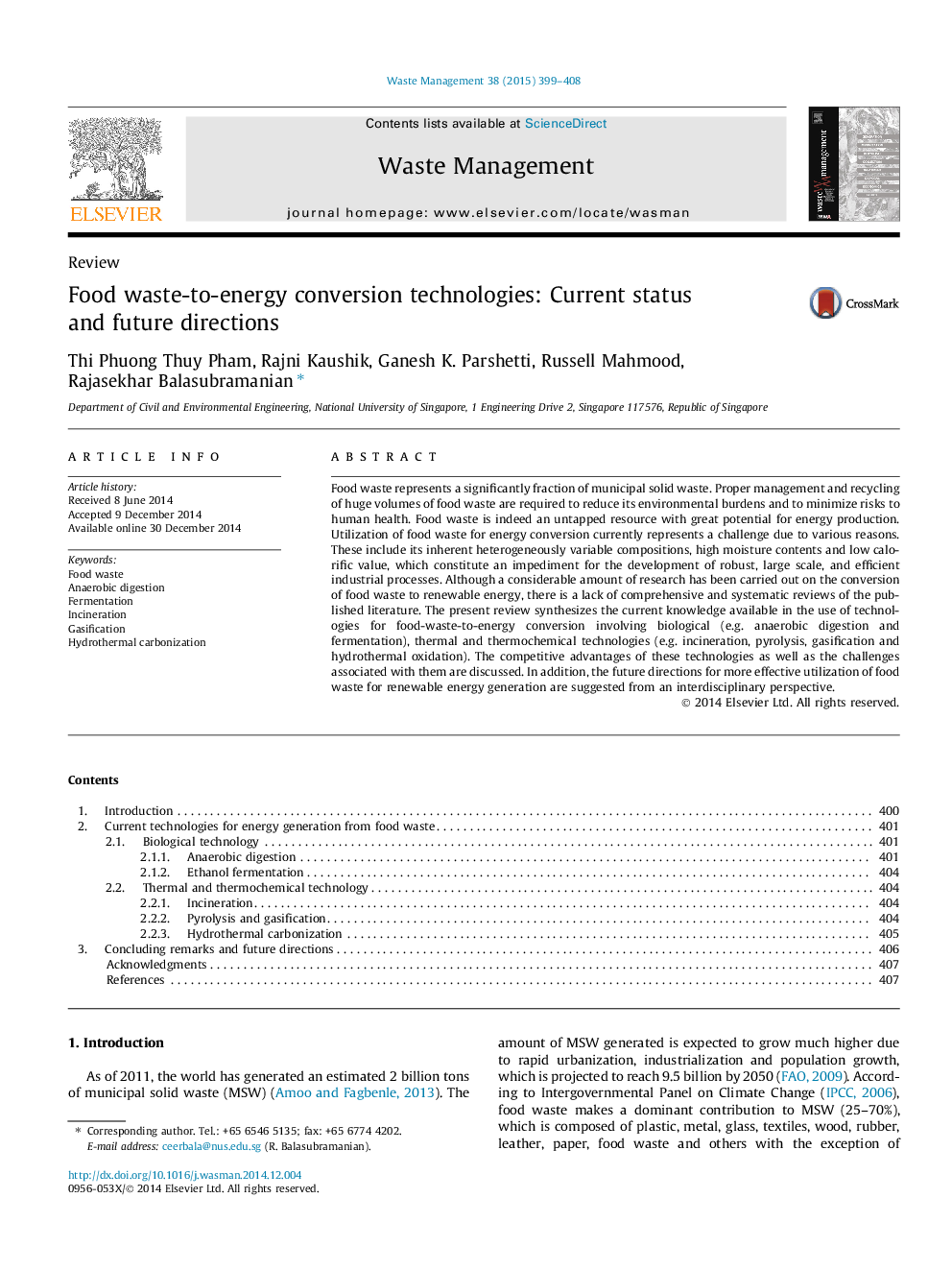| کد مقاله | کد نشریه | سال انتشار | مقاله انگلیسی | نسخه تمام متن |
|---|---|---|---|---|
| 4471426 | 1622647 | 2015 | 10 صفحه PDF | دانلود رایگان |
• This review discusses technologies related to conversion of food waste to energy.
• Incineration, pyrolysis and gasification are energetically unfavorable.
• Anaerobic digestion has negative environmental impact and high capital cost.
• Hydrothermal carbonization is an attractive option for food-waste-to-energy conversion.
• Future directions for renewable energy generation from food waste are suggested.
Food waste represents a significantly fraction of municipal solid waste. Proper management and recycling of huge volumes of food waste are required to reduce its environmental burdens and to minimize risks to human health. Food waste is indeed an untapped resource with great potential for energy production. Utilization of food waste for energy conversion currently represents a challenge due to various reasons. These include its inherent heterogeneously variable compositions, high moisture contents and low calorific value, which constitute an impediment for the development of robust, large scale, and efficient industrial processes. Although a considerable amount of research has been carried out on the conversion of food waste to renewable energy, there is a lack of comprehensive and systematic reviews of the published literature. The present review synthesizes the current knowledge available in the use of technologies for food-waste-to-energy conversion involving biological (e.g. anaerobic digestion and fermentation), thermal and thermochemical technologies (e.g. incineration, pyrolysis, gasification and hydrothermal oxidation). The competitive advantages of these technologies as well as the challenges associated with them are discussed. In addition, the future directions for more effective utilization of food waste for renewable energy generation are suggested from an interdisciplinary perspective.
Journal: Waste Management - Volume 38, April 2015, Pages 399–408
